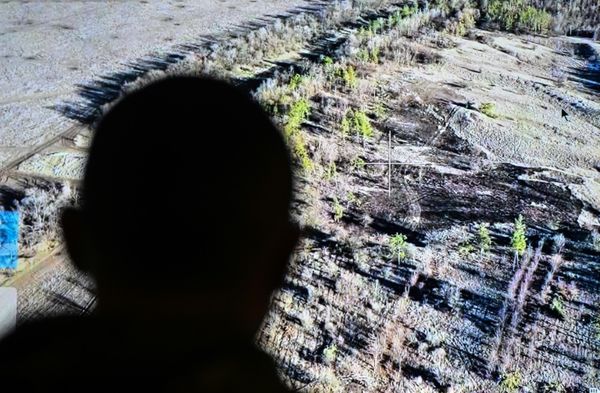
Hellah Sidibe has been on a streak since 15 May 2017. Rain or shine, and no matter how his body is feeling, he has gone for a run for the last 2,700-plus days.
Sidibe radiates joy. It comes through in the videos he posts on Instagram and YouTube about his running, which typically open with him saying “What’s up, my beautiful people?”
But before 2017, running was not connected to joy for Sidibe. He dreaded it, because it was used as punishment when he played soccer. He played professionally in Mali, where he grew up.
When he tried to continue his professional soccer career in America, his lack of US citizenship (he has since gained it) got in the way of teams signing him. “I came to a point where I was so frustrated in life, I really didn’t know what to do with myself, because now professional soccer wasn’t working out, and I couldn’t find a job,” he says. He thinks he had signs of depression.
He had an urge to do something that would make him feel in control. He thought: “Why don’t you try something that you’re a little bit afraid of?” he says. That something was running.
Sidibe set out to run for 10 minutes a day for two weeks. But after that, he didn’t want to stop. “I would be so happy when I’m out there, because I’m just thinking to myself, I’m out there for 10 minutes a day and I’m in control, no coaches yelling at me or pointing fingers, and I can stop whenever I want,” he says. “It made me feel whole again.”
Sidibe grew up in Mali as a happy kid. “Mali is one of the poorest countries in the world,” but people tended to see the glass as half full, not half empty, he says. He started to lose sight of that after coming to the US, where he compared himself more to others. Running got him feeling like himself again.
In 2021, Sidibe decided to run across the US to raise money for Soles4Souls, which gives shoes to kids in need around the world. He raised $50,000. It took him 84 days to run 3,061 miles, and he is reportedly the first Black man to run across the US solo.
While completing this run as a Black man, Sidibe had the police called on him many times. He knows that people often have preconceptions of what a runner looks like.
Once when Sidibe was in Boston, a Black man ran over to him and said Sidibe had given him the confidence to start running. “He started tearing up, and he told me his story,” Sidibe recalls. “He said: ‘When I saw you running, I thought I can run too, because, where I live, in my neighborhood, I’m scared to go running, because people might think that I did something wrong … like I’m running away from doing something.’”
Sidibe remembers telling the man how he tries to make sure he looks like a runner –like wearing a colorful running shirt and athletic hat. But he realizes not everyone can do that. “We say running is so accessible – all you need is a pair of shoes. But it goes beyond just having a pair of shoes,” he says.
Most of Sidibe’s miles have been on the roads, both in his run across the country and near where he lives in New Jersey. He has run four marathons. But he found that trail running – which requires navigating varied terrain – was fun in a different way.
Running and jumping in the woods, he says, “I just feel like a little kid.” When he records himself running on trails and watches it later, he realizes he’s making noises as he runs along, like kids do. “I’m just like, ‘Haaa!’ – these weird noises, I don’t even know that’s happening at the time,” he says.
During Sidibe’s run across the country, someone suggested that he run the 100-mile Leadville Trail race. He ran it in 2022 and then ran the Western States 100 in 2023. Running these long trail or ultramarathon races is a different kind of challenge – it’s like playing a chess game with himself, he says.
Now he’s looking forward to running the Javelina Jundred 100-miler on Saturday. In this one, he plans to push himself harder than he ever has for 100 miles. “I want to see if I can run a big [personal record], and I’m not talking about two minutes, but shaving hours off my hundred,” he says. His sponsors, including Hoka, Bare Performance Nutrition, and Tifosi Optics, support his running and racing.
Sidibe says he loves the trail running community, where people support and look out for each other, and they’re less focused on running against each other than road runners sometimes are. But at these trail races, Black people and other people of color are few and far between. Sidibe says that at Leadville, he didn’t see a single other Black person on the course.
He hopes that his presence at these trail races will show other people of color that they can fit into the sport, too. But not everyone can easily get to a trail to run on, Sidibe says. People have told him: “I would love to run trails, but I don’t know where to go, and also, if I go there, would I feel welcome when I get there? … Is it going to be weird to see me in the woods? Am I going to get stared at? I’m kind of nervous.”
Race entry fees can be several hundred dollars, plus the cost of lodging and transportation to races, putting them out of reach for many people.
Sidibe hopes to see the trail running community improve accessibility to people of color, such as by covering race fees and travel. He would like to create a program that invites people of color to run a trail race, paying for their shoes, gear, race fee, and travel expenses.
Sidibe has been making running accessible to others in a different way as well: He has been volunteering as a guide for a blind runner, through Achilles International. He learned to hold a tether between himself and the runner, and Sidibe guided the pair to a sub-four-hour marathon.
Through his run streak, Sidibe has learned two main lessons: “I am much stronger than I think I am,” and “There’s always light at the end of the tunnel,” he says. In his run across the US, “There would be one day when you’re miserable, you can barely pick your leg up, and then you survive that day. Then the next day comes,” and you realize you can get through that day, too, he says.
Sidibe tends to think he can do anything he puts his mind to. So he doesn’t dwell on the challenges of running every day. But one challenge has been making sure he can run while traveling. When he flew to South Africa, he stopped in Germany for 15 hours so he could get outside and run without missing a day. Another challenge is running through injury, because that can be painful and take away from the enjoyment of moving your body, he says.
He’s not sure when he’ll stop his streak. “I give myself permission to stop any day, and I don’t know when that’s going to be. The day I feel like I get up and I absolutely hate running, then I’m gonna stop,” he says. He has wondered whether that day will be a sad one. “But I don’t think so, because running already brought so much to me in my life.”







